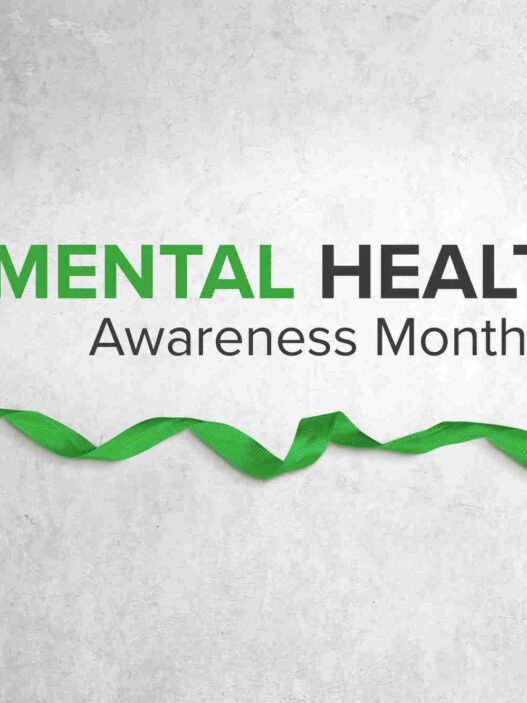Stress is common in the nursing profession. Here are the symptoms of stress and four powerful stress management techniques for nurses.
Providing care to people who are in need brings great purpose to nursing professionals. However, the profession comes with many physical and emotional demands that can often cause acute stress. Some of the factors include long working hours, a hectic environment, multiple patients, as well as being exposed to life-and-death situations. All the nurses who are providing good quality care to the patients often struggle to manage their stress.
According to some studies, almost 50% of nurses experience moderate to high levels of stress.These high levels of stress can surely affect the quality of care they provide, could deplete their energy and also impede critical thinking, which is one the most necessary aspects of their profession. Stress can also affect decision-making ability and leadership qualities in nursing. Being stressed in this profession is very normal, but one should know how to manage their stress so it won’t affect their day-to-day life.
Symptoms of Stress in Nurses
Before we discuss some stress management techniques for nurses, we should be aware of the symptoms of stress in nurses that includes:
- Feeling annoyed or angry
- Dealing with anxiety and fear
- Acting in denial or feeling numb
- Experiencing uncertainty or nervousness
- Losing motivation or energy
- Facing tiredness or burnout
- Going through sadness and depression
- Struggling with sleeplessness and nightmares
- Not feeling hungry (appetite loss)
- Having difficulty concentrating
- Adopting a cynical outlook
- Turning to alcohol, tobacco or drugs for comfort
Stress Management Techniques for Nurses
Below are some powerful and proven stress management techniques for nurses:
Katharsis
‘Katharsis’ or ‘Catharsis’ is a Greek word which means “cleansing” or “purging” or “purification” of the emotions mainly pity and fear. This can be one of the powerful stress management techniques for nurses. Some of the ways are as mentioned below.
After a long day on the job, it’s super tempting for nurses to just vent out in front of the TV or computer. But the stress doesn’t magically disappear. Those tough moments might replay when they are trying to catch some sleep, and the next shift is just around the corner, bringing the same stressors. So, here is a thought – talking about it can actually help.
Sure, it might be tricky with friends or a partner who is not in healthcare, but the key is to let it out, not necessarily to find a fix. Chatting about the stressful stuff helps you recognize what’s bugging you, which later on can help you figure out how to deal with it.
And here’s the kicker – talking it out helps pinpoint the real issues. For example, a nurse might have a rough day because the staffing is a mess. But in the talk session, they might realize it’s not just about the extra workload; it’s that the manager isn’t really getting their worries about patient safety. So, to fix things, the nurse needs to sort out the communication glitch with the staff and the manager.
Deep Breathing
Deep breathing exercises are one of the most common and easiest-used stress management techniques for nurses. However, you need to set a daily schedule for deep breathing technique to work. You might not see results instantly, but deep breathing has a profound impact on the long run for many people. It not only reduces stress but also anxiety in your daily life.
It can make your lungs work better, keep your blood pressure in check, and do some other good things for your mental and physical health. And guess what? You can do this breathing technique whenever and wherever you want to zap away stress. Try it for 5 to 15 minutes – it’s like a little health boost. Just pick a time each day, find a cozy spot that’s quiet, and wear something comfy. Easy, right? Breathe in, chill out, and let those good vibes flow.
Exercise for Stress Management
Including exercise in your daily routine can be great for managing stress. Exercise is proven to boost mood and manage stress as it releases endorphins and also releases physical tension in the body. Other than reducing stress, exercise as one of the stress management techniques for nurses can also help build stamina among nurses, which will allow them to handle long working hours with ease.
Finding time for exercise can be tough, especially for nurses with long shifts or busy schedules after work. Even nurse leaders with lots of responsibilities can struggle to fit in gym sessions or exercise classes. But guess what? There are other ways to sneak in some exercise for stress relief, even during work hours.
It doesn’t have to be all or nothing – a little movement here and there can make a big difference. For example, taking stairs instead of elevators can allow you to exercise while working. Moreover, nurses can even do some squats or lunges during lunch breaks to fit in the exercise in their routine as stress management techniques.
The U.S. Department of Health and Human Services has recommended a mix of high and low-intensity aerobics combined with strength training exercises. The following types of exercise are quite easy for nurses with different routines:
- Go to classes like aerobics, pilates, yoga, or cycling
- Join a gym
- Lift weights or do workout videos at home
- Walk or jog with friends, family, or pets
- Take a dip with some swimming
- Try interval training – short bursts of intense activity
Managing Hydration and Nutrition
It is often seen that due to hectic schedule at work and irregular timings, nurses often ignore their own hydration and nutrition. As suggested by the American Holistic Nurses Association, nurses must drink 16-24oz of water before a 12 hour shift.
Further, a diet high in fresh fruits and vegetables with antioxidants, whole grains, adequate protein, and avoiding processed foods can remove brain fog and provide nutrition to get them going. Dietary changes can prevent stress and stress-related diseases. The relationship between stress and nutrition is bi-directional. While nutrition has a positive effect on managing stress, stress can cause binge eating of junk and processed food.
Identifying Personal Stressors
As a nurse, you need to realize what kinds of situations, conditions, or people cause stress in your life. You can identify the personal stressors just by journaling or making notes for the day.
Wherever you feel overwhelmed, jotting down the situation is the best possible situation. It will take all the stress out of your mind to the paper, and you can also find your stressors to avoid or deal with it in the future. For example, if you notice that having late lunch messes with your mood, you can stash some snacks or protein bars at work to keep hunger from adding to the stress.
Conclusion
Dealing with stress and burnout can be a handful. However, don’t ever let the stress consume you; always look out for ways to decrease your stress. Having a healthy mental state in the nursing profession is very important because you are going to take care of many patients all day, and a mind with anxiety cannot provide quality care to the patients.
A nurse with a fresh and healthy mind would be able to do the critical thinking that is required to take care of patients in an emergency. Therefore, managing stress is very important in the nursing profession.
Disclosure – This is a sponsored post and the views expressed are of the sponsor/author/third party and not of Healthieyoo’s editorial team. We disclaim any and all liability to any party, company, or product for any direct, indirect, implied, punitive, special, incidental, or consequential damages arising either directly or indirectly due to the use of content published in this article. The publishers of this website take no responsibility for any health issues, personal injury, death, disability, or any other harm due to the content on our website or any advice or opinion expressed on our website. Please consult your healthcare professional before making any decision related to your health. Please also read our medical disclaimer”.











